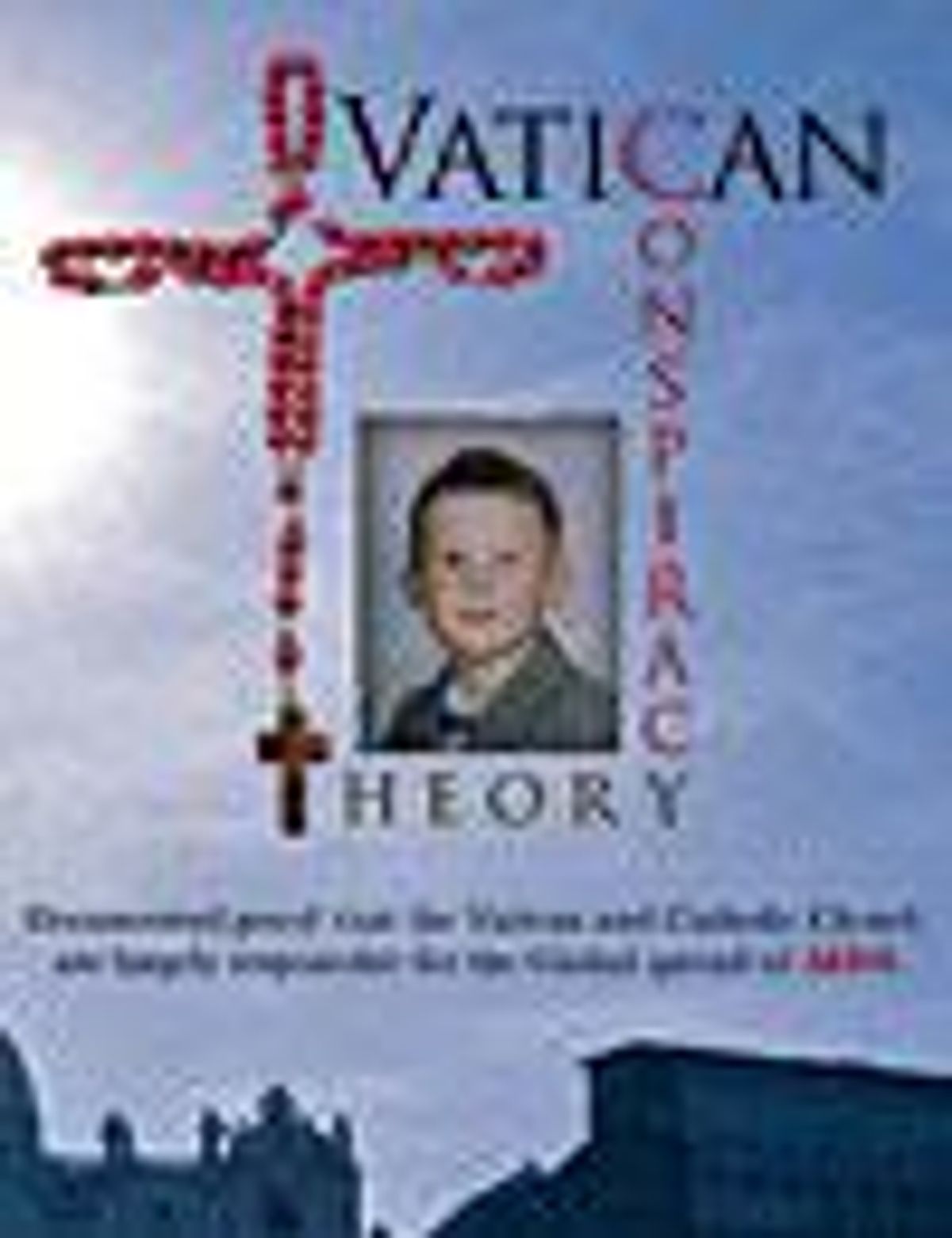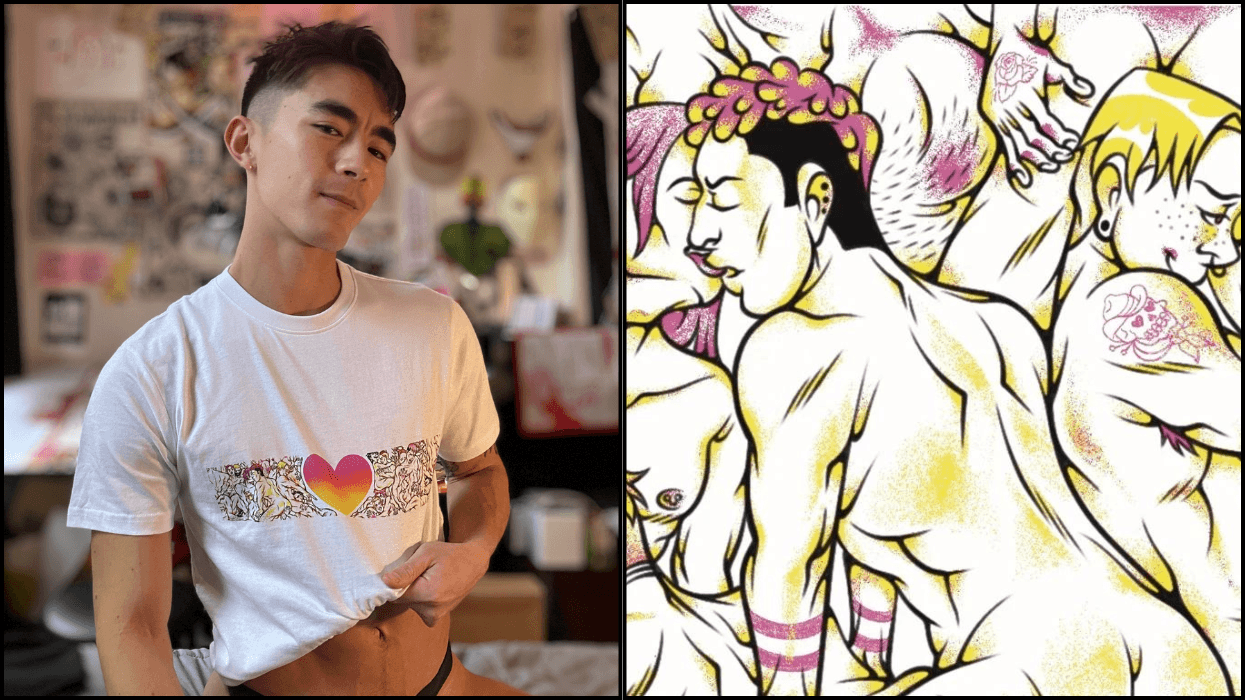
The author of a new book says he was infected with HIV by a priest who sexually abused him in 1977. Could this be the start of a new Catholic Church scandal?
April 23 2007 12:00 AM EST
November 17 2015 5:28 AM EST
By continuing to use our site, you agree to our Private Policy and Terms of Use.

The author of a new book says he was infected with HIV by a priest who sexually abused him in 1977. Could this be the start of a new Catholic Church scandal?
Eric Bepots is convinced that he contracted HIV from a Catholic priest who raped him in 1977. Never mind that he has no empirical evidence to support that charge; never mind that the AIDS virus wasn't discovered in humans until 1981--Bepots remains undaunted in his belief. In his new, self-published book Vatican Conspiracy Theory--an idiosyncratic compendium of commentary and court documents from his lawsuit against the Manchester, N.H., diocese, in which he sought $2.5 million and settled in 2003 for $490,000--he alleges that the Catholic Church has covered up his story and others like it; he also calls for federal legislation that would require churches to reveal the HIV status of priests convicted of sex abuse.
"The Vatican and the Roman Catholic Church are undeniably guilty of crimes against humanity," says Bepots (a pseudonym). Hyperbole aside, the self-styled activist-cum-author, 46, who now lives in Caribou, Maine, is certainly shedding new light on a subject about which little is known: HIV infection through clergy sex abuse.
Bepots doesn't remember many details of the 1977 incident that instigated his crusade. What he does recall is being invited one night that summer to the home of "Father Willie," his priest at St. Mary Church in Dover, N.H. The priest, according to Bepots, drugged and raped him; he was 16, about to start his senior year of high school, and a virgin. The experience still haunts him today. "Parents tell you to believe in fairy tales," he says, "but I knew damn well after that assault that the devil was walking the earth--and in this case was walking around in a priest's body."
After graduating, he moved away and tried not to think about what happened. Then, in the late '80s, he found out through a friend that Father Willie had died, and immediately he assumed the worst. Although obituaries at the time said the priest died after a long illness, Bepots says he knew that it was AIDS--and that he must have the disease too. When his friend "said Willie was dead, I just about fell over," he says. "I just intuitively knew that if I tested positive, it would be because of him." His suspicion was confirmed in 1991 by a positive test result, which he says explained all the times he had felt ill or had trouble catching his breath ascending a flight of stairs. He says his partner was HIV-negative and was tested regularly, and Father Willie was the only other person Bepots had been with sexually.
"Most people tend to believe that HIV and AIDS became widespread only in the early 1980s, but think about it--it's not like you got sick overnight after being infected," he says. "Two doctors told me that it was very possible that [the priest] was positive before 1977 and that it's very possible I had it since then and was [asymptomatic]. Doctors just hadn't done enough research to know what the disease was in the 1970s."
Whether that's true or not, experts on the Catholic Church's sex abuse scandals acknowledge that some victims could have been infected with HIV by their abusers. "I'm sure that many of the abusive priests who died of AIDS, or who were rumored to die of AIDS, did indeed infect their victims," says Anne Barrett Doyle, codirector of the Waltham, Mass., watchdog group Bishop Accountability. "It could be that these cases are simply hard to prove and so are not reported."
Proving his own case has become Bepots's mission in life. On medical disability since 1994 because of his illness, and having spent much of the past six years of his life--and his settlement money--on the book (available on Amazon.com) and residual lawsuit costs, he says he's just trying to help people.
"I know everybody has their tale of woe, but the reality is, in the year 2007, when you are violently, sexually abused by someone, regardless of age, color, or sexual preference, you should have the right to know what that person's HIV status is," he says. "You should have the right to know whether you were [infected] by that person."
Want more breaking equality news & trending entertainment stories?
Check out our NEW 24/7 streaming service: the Advocate Channel!
Download the Advocate Channel App for your mobile phone and your favorite streaming device!

